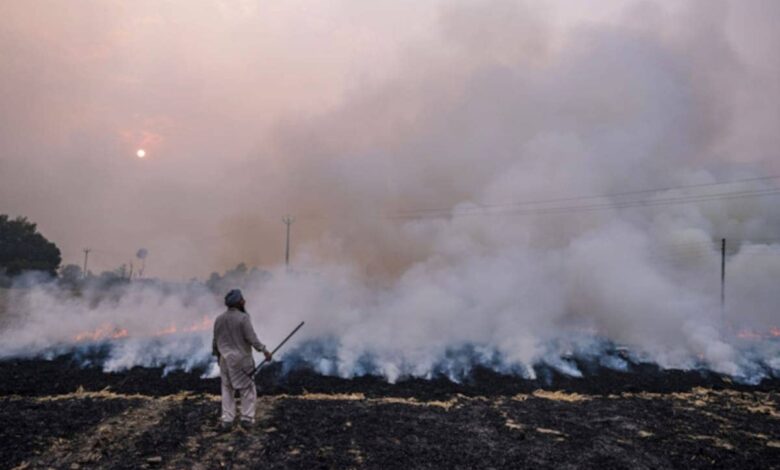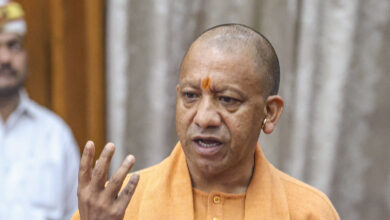
AQI in Noida, Greater Noida, and Ghaziabad dropped to ‘abysmal’ levels Sunday; Noida recorded an AQI of 304 on a scale of 500, a profoundly worrying spike from 169 a day earlier.
New Delhi: Toxic air in Uttar Pradesh’s Greater Noida, Noida, and Ghaziabad results from Pakistan burning stubble, or agricultural waste, a state pollution board official declared this week.
DK Gupta, a regional officer with the Uttar Pradesh Pollution Control Board in Greater Noida, pinned the smog blanket cloaking Delhi and the NCR every winter, supplemented in large part by farmland fires from UP, Haryana, and Punjab on the neighboring country -that is over 500 km from Noida, Greater Noida, and Ghaziabad at their closest point to the international border.
“This is the first time this year that all three cities, Noida, Greater Noida, and Ghaziabad, registered ‘inferior’ air quality on the same day. And our neighboring country. Pakistan. Needs to be blamed”, he said, according to The Times of India. “Increased cases of stubble burning have sent poisonous fumes across the border,”
Mr Gupta’s statement followed the AQI in the three cities dropping to ‘abysmal’ levels Sunday; Noida recorded an AQI of 304 (on a scale of 500), a profoundly worrying spike from 169 a day earlier.
Ghaziabad reported a similarly worrying AQI – 324 – and Greater Noida 312.
Delhi was worst – Sunday’s average AQI was 352; the Anand Vihar area recorded 405. The city was covered with a layer of acrid, lung-burning smog.
This morning, the AQI for Noida, Greater Noida, and Ghaziabad has decreased to 267,248 and 252, respectively. Delhi recorded an overall reading of 328 with ‘abysmal’ air quality levels.
A lack of winds compounded the problem; there was no breeze in parts of the city Sunday, said the India Meteorological Department, trapping pollutants in the air.
Air quality issues- and the ensuing rise in respiratory diseases—have become a chronic complaint for Delhi and its satellites; last week, the Supreme Court asked the central, Punjab, and Haryana governments questions about their failure to comply with anti-pollution laws.



